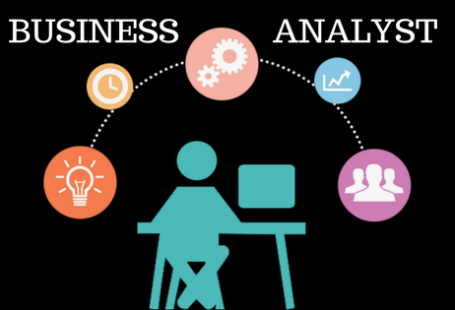Roles and Responsibilities of Business Analyst : A business analyst is the link between IT and the business. The Administration knows little about information technology, and the IT people do not know a lot about business. Mastering the technical issues of both formations is paramount for overcoming the challenges and for the development of tasks, such as management activities and strategic business planning. It is thus, a privileged position, connecting the technical solutions to the business objectives.
The Business Analyst should be able to understand the general functioning of the company, from marketing, finance, regulatory affairs, and governance, to customer service. A business analyst further needs to understand the economic context in which the company operates, and understand the organizational culture of the company and the way in which power relations are formed. Without this knowledge, the professional runs the risk of proposing solutions that, although technically perfect, can cause great problems and resistances.
A business analyst needs to master the various techniques required to understand, model, analyze, and document business processes and system requirements. He/she needs to be fluent in the methods, languages and notations used in the company, and determine whether market standards – such as BPMN, IDEF or UML – are specific to the organization.
Roles and Responsibilities of Business Analyst
This professional is responsible for prospecting opportunities for business growth in line with the company’s strategy, considering the direct and indirect impacts in other areas. To be more specific: a business analyst needs to:
- Support the continuous improvement of the technology and internal processes of the institution,
- Guarantee that the projects have well defined purposes,
- Synthesize information provided by several people related to the business,
- Stress the possibilities of the business,
- Identify and analyze the risks for each candidate solution identify projects,
- Manage projects to act as a program manager for the implementation of selected solutions,
- Seek the best business opportunities,
- Analyze trends,
- Create new products,
- Re-create existing products, and
- Think about finding new ways of doing business for the company.
Knowing the details of the business in its different aspects is fundamental to being successful in this function, for example, having a strategic vision to define orientation, objectives and macro processes; an operational vision to define and analyze the implementation of the business model through the organization’s policies and guidelines; a process view to define, model and detail processes, procedures, steps and steps; and a view of requirements to analyze technical aspects of requirements and specifications to meet business needs.
The business analyst is the recipient of the demands of the company’s business professionals, who often have little knowledge of technology and often have little time to explain what they need. By knowing the business in depth, he/she is able to quickly identify the user’s need, even if it is not clearly articulated. In addition, a business analyst is able to propose solutions that may not have occurred to the user, as well as assess immediately the impacts of what is being requested in other business processes of the organization.






